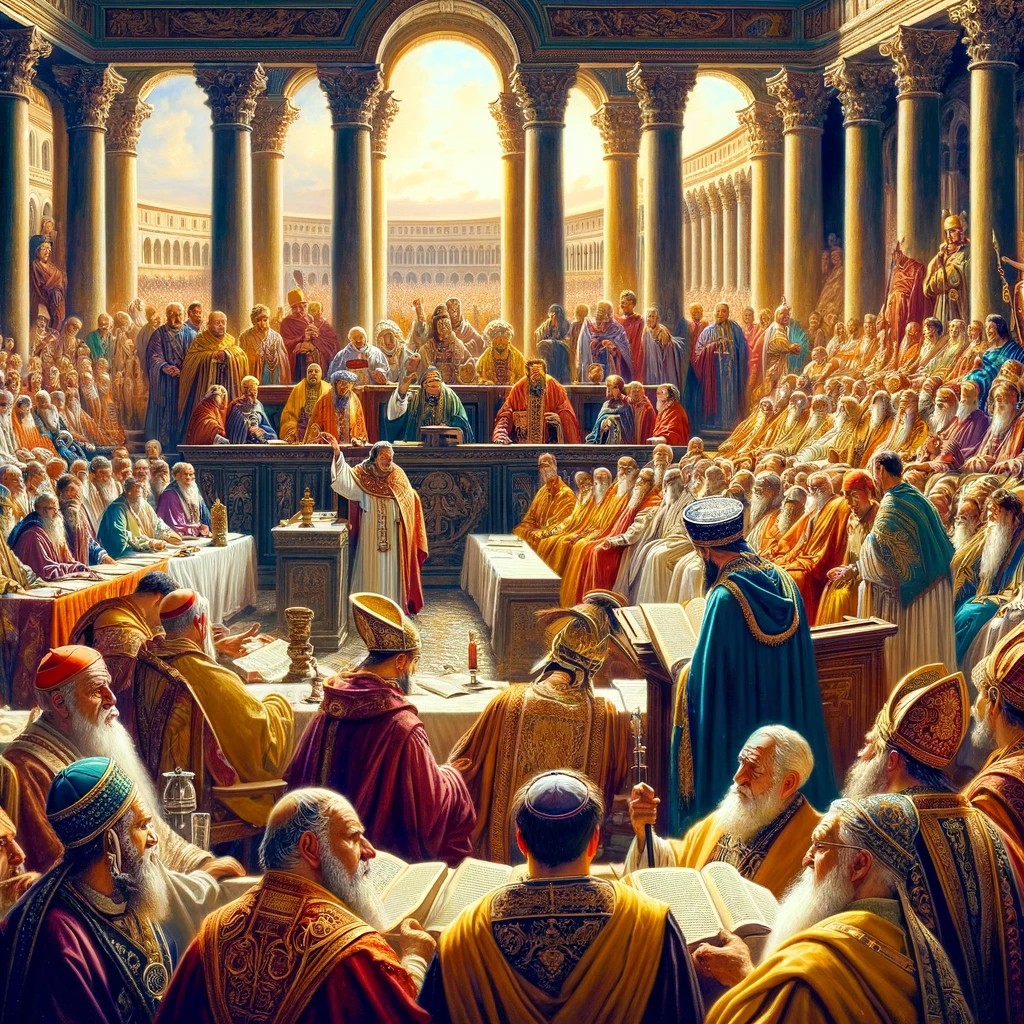The Great Divide: Reassessing Christianity’s Evolution in the Shadow of Constantine’s Influence


The evolution of Christianity, from its inception as a Jewish sect centered around the teachings of Yeshua (Jesus Christ) and His apostles, into a state-endorsed religion of the Roman Empire under Constantine, marks a period of profound transformation and controversy. This transition, often referred to as “The Great Divide,” raises critical questions about the authenticity of the Gospel message and the impact of political power on religious purity. By exploring the historical context, scriptural interpretations, and the significant role of Constantine and subsequent political leaders in shaping Christian doctrine and practice, this post delves into the complexities of discerning the “right way” amidst accusations of a perverted Gospel.
The Apostolic Gospel and Early Christian Community
Initially, the Christian message was deeply intertwined with its Jewish roots, with followers of Yeshua observing Jewish laws and customs while believing in Yeshua as the promised Messiah. This period is characterized by a community living out the teachings of Yeshua, emphasizing love, humility, and a direct relationship with God, unmediated by political power.
The Constantinian Shift
The conversion of Constantine the Great and his subsequent endorsement of Christianity as a favored religion within the Roman Empire represent a watershed moment in Christian history. This endorsement, while ending centuries of persecution and legitimizing Christianity in the public sphere, is also criticized for intertwining the church’s spiritual authority with temporal power. The Council of Nicaea in 325 AD, convened by Constantine, is often cited as a pivotal point where, according to some perspectives, the original Gospel message began to be co-opted for political purposes, leading to the establishment of doctrines that critics argue were influenced more by the political and social demands of the empire than by the teachings of Yeshua and the apostles.
Scriptural Integrity and Prophetic Warnings
Critics of the Constantinian influence on Christianity often point to scriptural warnings about the corruption and perversion of the Gospel (e.g., Acts 20:29-30, 2 Peter 2:1-3, Matthew 7:15-20) as prophetic insights into the challenges the church would face. These passages underscore the importance of vigilance in preserving the purity of the Gospel message against external influences, including political power.
Reassessing the “Right Way” in Light of History
The question of the “right way” becomes particularly poignant in this context. It challenges believers to sift through centuries of doctrinal development, influenced by the merging of church and state, to rediscover the essence of the Gospel as taught by Yeshua and His apostles. This quest involves a critical examination of the historical evolution of Christian doctrines, practices, and the church’s role in society, seeking to distinguish between the teachings rooted in Yeshua’s message and those potentially shaped by political ambitions.
The Quest for Authenticity
In responding to the perceived perversion of the Gospel by Constantine and subsequent political leaders, there is a growing movement within Christianity that seeks to return to the apostolic faith. This movement emphasizes a reevaluation of established doctrines, liturgical practices, and the church’s relationship with power, advocating for a faith that prioritizes spiritual authenticity over political influence.
Conclusion: A Call for Reflection and Renewal
The “Great Divide” and the allegations of a perverted Gospel under Constantine’s reign invite a period of reflection and potential renewal within Christianity. They call on believers to engage deeply with their faith’s history, to discern the elements of their belief and practice that are true to the teachings of Yeshua and the apostles, and to reconsider those that may have been unduly influenced by the entanglements of church and state. This journey towards authenticity is not just about looking back but also about moving forward in faith, with a commitment to embodying the values and teachings of Yeshua in a way that transcends the confines of political power and societal expectations.

